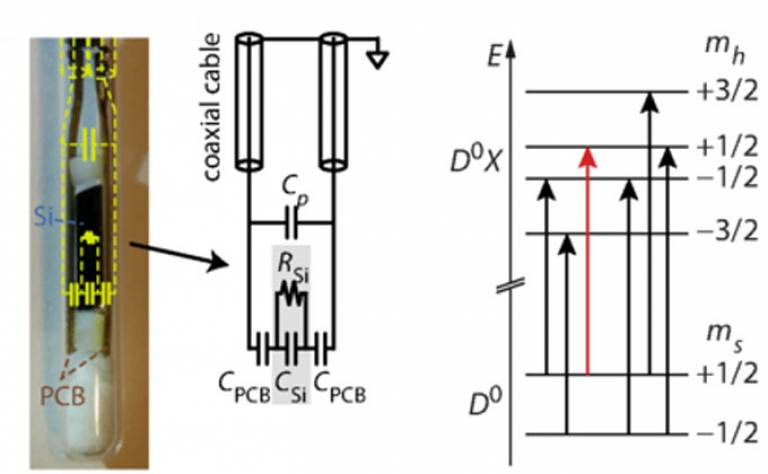Electron spin resonance of Phosphorous donors in isotopically purified Silicon
7 May 2019
Contactless capacitive measurements used to probe the photoconductivity of doped silicon samples.

Coherence times of electron spins bound to phosphorus donors have been measured, using a standard Hahn echo technique, to be up to 20 ms in isotopically pure silicon with [P]=1014 cm−3 and at temperatures ≤4K. Although such times are exceptionally long for electron spins in the solid state, they are nevertheless limited by donor electron spin-spin interactions. Suppressing such interactions requires even lower donor concentrations, which lie below the detection limit for typical ESR spectrometers. In the paper the authors describe an alternative method for phosphorus donor ESR detection, exploiting the spin-to-charge conversion provided by the optical donor-bound-exciton transition. They characterize the method and its dependence on laser power and use it to measure a coherence time of T2=130 ms for one of the purest silicon samples grown to date ([P]=5×1011 cm−3). They then benchmark this result using an alternative application of the donor-bound-exciton transition: optically polarizing the donor spins before using conventional ESR detection at 1.7 K for a sample with [P]=4×1012 cm−3, and measuring in this case a T2 of 350 ms. In both cases, T2 is obtained after accounting for the effects of magnetic field noise, and the use of more stable (e.g., permanent) magnets could yield even longer coherence times.
You can access the paper full text at https://journals.aps.org/prapplied/abstract/10.1103/PhysRevApplied.11.054014
 Close
Close

